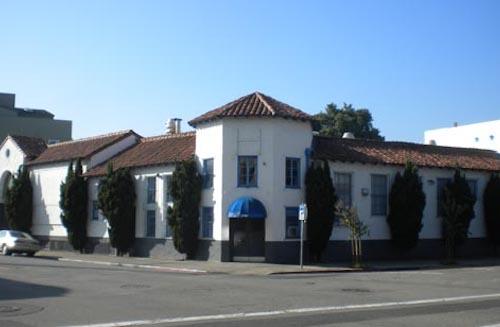
A few weeks back on YouTube, I came across a video Guided By Voices made for one of their recent singles. In it, a magician sits in front of a dressing room mirror before a performance, practicing his tricks for the imminent show. The song’s lyrics, repeated three times in a kind of cryptic Greek chorus to the action, run as follows:
Keep it in motion
Keep it in line
Keep it in motion
Keep it on time
Walk it down the line
Walk it all the time
Keep it in line
At first blush, the mood seems vaguely affirmative, a bro-ish pat on the rear for our would-be illusionist as he psychs himself up to perform.
You don’t get the idea he’s an especially good magician. The waistcoat’s garish and a size too big, the hand movements are hammy, his routine’s cliché. So the lyrics might also cut another way, as an ironic commentary on our deluded sleight-of-hand man and his worn-out tricks. Poor schmuck’s keeping it in motion, walking down the expected line, just like any one of us might in our mundane routines of office work or childcare, insistent as the synthesized drumbeat that drives the song.

Or maybe we’re meant not to pity but mock our performer and his efforts to find magic in the banal, stand out as special snowflake in a blizzard of identical “it”s. The political undertone’s a little sinister, too: conform, obey, keep it in line, move it along. Whatever order it is the song’s concerned with makes its demands of you “all the time,” as if iteration were the tragic condition of time itself.
Like many of you, I’m skeptical of poetry’s absorption into the cycles of academic time. Professionalized intellectual labor, with its yen for specialization, accreditation, and mastery of a shared syllabus that defines “the field,” is crucial for certain beautiful human pursuits—say, unearthing Çatalhöyük, or deciphering Mayan glyphs. To my mind, it’s a less happy fit for poetry, where professionalization amplifies the natural human tendency to “keep it in line”: be pleasant at the conference, show a politic familiarity with the latest poetic trends, read the right books and know where they map onto the field.
Which made me especially grateful for The East Bay Poetry Summit last month. It’s not that the people I met there were necessarily unpleasant, violently partisan, or innocent of the syllabus of contemporary poetics. Nor was it professor-free: grad students, tenured faculty, and adjunct academic workers of all stripes turned out in droves. What made the Summit special is how happy everyone I spoke with seemed to be about meeting without the mediation of an institution. The four-day event—five sets of readings, a karaoke party, a softball game, and a closing BBQ—was an amateur affair in the very best sense, made of unpaid labor and volunteer hours. I saw poets sweeping sidewalks, adjusting sound levels, serving lentil soups, toweling up spilled milk after milk-spilling performance pieces, stretching Twister-like across crowded floors to fiddle with rat’s nests of power cords, opening their private homes and rented rooms to a sea of virtual strangers.
Did any of this make the poetry any better? Or even any different than what you might hear at your average off-site reading at AWP? Not really. Gender fluidity was maybe a little more front-and-center, the fashions more thrift-store inventive, the hygiene more flexible. But this wasn’t a poetic salon des refusés; it wouldn’t surprise me to find any one of the poets I heard at the Summit reading at AWP, or completing an MFA, or even blogging for Harriet.
What made the Summit magic wasn’t primarily a difference in poetics, or in the spectrum of poets represented. (The pros, after all, have gotten very good at being representative.) It had more to do with the context the Summit itself lent to whatever texts were read. And that context, at least as I perceived it, wasn’t simply the thrill of a scattered community meeting asses to elbows in the same backyards, high on the rush of its offline existence. It wasn’t the temporary autonomous zone of camaraderie and communal partying, doomed to dissipate post-Summit. For me, the difference came down to the kinds of labor that went into organizing an event on this scale, which made everything that happened over the weekend, from dance parties to shared rides between readings, implicitly, or at least potentially, political. The difference was the ethos of Occupy.
Among its many other meanings, Occupy Oakland was a landmark event in the Bay Area’s storied poetic history, up there with Kenneth Rexroth’s anarchist-inflected salons, the Six Gallery reading, the Berkeley Poetry Conference, or Robert Duncan pushing Barrett Watten off the mike. Nearly all the Summit organizers were involved in some way or another with Occupy, and many locations where the readings took place had been key gathering points for the protestors at Oscar Grant Plaza. The most visceral reminder of Occupy for me, and the one that seemed to point its energies forward into the future, was the reading that closed the Summit at the Omni building in North Oakland.
The Omni began life in the 1930s as an Italian social club, re-opened as a thrash metal venue in the ‘80s, and just this year became the new home of the Omni Collective, a confederation of twelve all-volunteer organizations, many with roots in Occupy. The one I know best is The Bay Area Public School. They hosted the last night of the Summit, which was also their first event in the cavernous, rock-ready Omni. Like everything the Public School organizes—classes on subjects from “Whack Utopias” to Spinozan ethics, reading groups Old Norse to Alice Notley—the night was completely free, down to the drinks and food. Since the tech wealth rolled in, I can’t imagine living in the Bay Area again, except for the lure of taking free courses with other beginner’s mind enthusiasts in subjects like “Reading the Popol Vuh,” “Stochastic Polyagogies: Iannis Xenakis’s Formalized Music,” “Lark in the Morning: Studying the Occitan Language,” or “The Public Shul: Reading the Talmud Very, Very Slowly.”
The Public School’s latest poetic adventure is to read all of Alice Notley’s work in chronological sequence, in a backyard garden near the BART station, books provided to anyone who needs them, “no assignments, no prompts, no maintenance, only reading out loud until the light dies away.” It culminates in a three-day symposium this October, Alette in Oakland, with an expected appearance by Alice Notley herself. As if you needed more reasons to like Alice Notley.
The magic doesn’t just happen (magic rarely does). It takes the same sweat, squabbling, cajoling, conferring, freaking and fretting that any collective endeavor involves. It’s the willingness to squabble and sweat, as much as the intertribal party vibe, that impressed me most about the Summit. At the opening karaoke, one of the organizers performed “Over the Rainbow,” that Depression-era hymn to wishing a wish and changing your world: “Where troubles melt like lemon drops/Away above the chimney tops.” At the final reading at The Omni, another organizer asked for help with keeping noise down and the street clean afterward, so the neighbors don’t get their backs up about the new tenants. “Communism takes work,” he told us, and from what I saw at the Summit, the work, intellectual and otherwise, was there to be shouldered by everyone, not just the funded pros.
What I’ll remember about the Summit, beyond the poetry, is the way it balanced so improbably and gracefully between those two poles—labor and lemon drops—as if each were the ground of the other. Once we’ve learned that trick, who needs magicians anymore?
Koeneke was born in Omaha, Nebraska, and grew up in Tucson, Arizona, and Los Angeles. He is the author...
Read Full Biography

